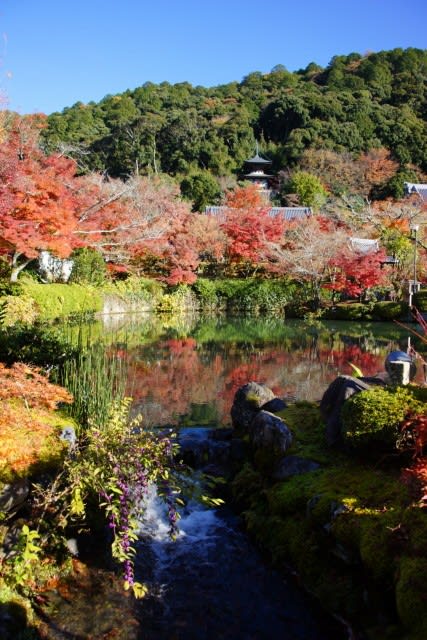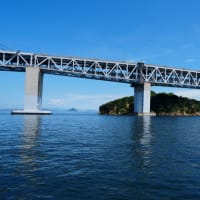The following is from the Sankei Shimbun.
I have mentioned many times that Shinzo Abe is a rare politician and one of the best in the international community.
Those who read this article and subscribed to the monthly magazines' WiLL and Hanada, which were released yesterday, should be reminded that I have hit the nail on the head.
Former Prime Minister Shinzo Abe: "Show the will that needs to be shown" in diplomacy with China
Former Prime Minister Shinzo Abe delivered a lecture titled "The Future of Japan" at the 150th lecture meeting of the Kyushu "Seiron" Konwakai held at the Hotel New Otani Hakata in Fukuoka City's Chuo Ward on March 19 to commemorate the 30th anniversary of its establishment.
He appealed for diplomacy with China's rising power, saying, "We must firmly show the will that needs to be delivered.
The main points of his speech are as follows.
When the second Shinzo Abe administration came to power in 2012, the social situation was abnormal.
The economy had been stagnant under the Democratic Party of Japan (DPJ) administration and was sinking into a deflationary recession.
What needed to be done was first to rebuild the economy, gain the people's confidence, and then proceed with what needed to be done further.
Japan has been in deflation for a long time.
After the end of the first Abe administration, I heard from professors such as Professor Emeritus Koichi Hamada of Yale University in the U.S., who at the time were known as proponents of reflationary policy.
I came to the idea that the monetary policy might have been wrong so far.
I also realized that the mainstream thinking in Japan was different from the common sense of the world.
Like the U.S. and other countries, we decided to implement a drastic monetary easing policy to improve employment.
The second Abe administration was the first to place macro-financial policy as a policy pillar.
As a result, employment has improved dramatically, with full-time employees' effective job offer ratio exceeding one time.
The increase in employment has opened up opportunities for women and the elderly to play an active role.
It has been a big plus for economic growth.
It is a big mistake to say that the disparity has widened under the Abe administration; the relative poverty rate has improved.
Last year, under the Abe administration, we set up a supplementary budget of 57 trillion yen against the new corona.
Thanks in part to the hard work of the subsequent Yoshihide Suga administration, the unemployment rate is now the lowest in the developed world.
It can maintain employment if fiscal stimulus is implemented correctly.
It is a mistake to think only of fiscal soundness, and Japan's fiscal situation still allows room for aggressive fiscal policy.
The biggest challenge of the 21st century is dealing with China's rising power.
In terms of security, China uses its massive military power to unilaterally try to change the status quo in the South China Sea and the Senkaku Islands (Ishigaki City, Okinawa Prefecture).
It has not hidden its ambitions toward Taiwan and is increasing its military coercion.
In order to prevent the situation from developing into an actual conflict or dispute, it is necessary to strike a balance first.
China's military spending is four times that of Japan.
Since the inauguration of the second Abe administration, defense spending, which had previously been reduced, has turned positive, but we must continue to build up further and increase our capabilities.
With the enactment of the Peace and Security Law, the bond between the Japan-U.S. alliance has become more robust.
Since Japan and the U.S. alone are not sufficient, we have created a "quad" framework consisting of Japan, the U.S., Australia, and India.
We have also presented the concept of a "free and open Indo-Pacific.
Japan, the U.S., the U.K., and the Netherlands are also conducting joint training.
In the past, there was an "ABCD siege" between the U.S., U.K., China, and the Netherlands, but now C (China) has been replaced by J (Japan).
I won't tell you where they are encircling because it would be too provocative.
Another important thing is to show the will that needs to be delivered.
When I recently said that a Taiwan contingency would be a contingency for the Japan-U.S. alliance, I thought it was necessary to say what needed to be said.
There is no doubt that an invasion of Taiwan would be a "situation of material influence" under the Peace and Security Law.
It is possible that it could develop into an "existential crisis.
Having mentioned that possibility, we need to make it clear in advance that it would be a big deal if China did it.
The worrying thing now is that more than 100,000 Russian troops are deployed near the Ukrainian border.
U.S. President Biden has warned early on that he will not intervene militarily but impose economic sanctions, but how effective will that be against Russian President Putin?
It is also the place to look at Taiwan.
If the international community cannot stop Russia's invasion, we have to imagine what China will think.
A response that takes this into account is required.
Japan's missile defense is not a deterrent but only a defensive capability.
Would U.S. public opinion approve of only its young people risking their lives for Japan when the Self-Defense Forces are not mobilized?
If they think that the U.S. will not help Japan, there is a risk that the other country will press the button to launch missiles.
In order to continue to strengthen the bond between the Japan-US alliance, Japan must also have a striking power.



















